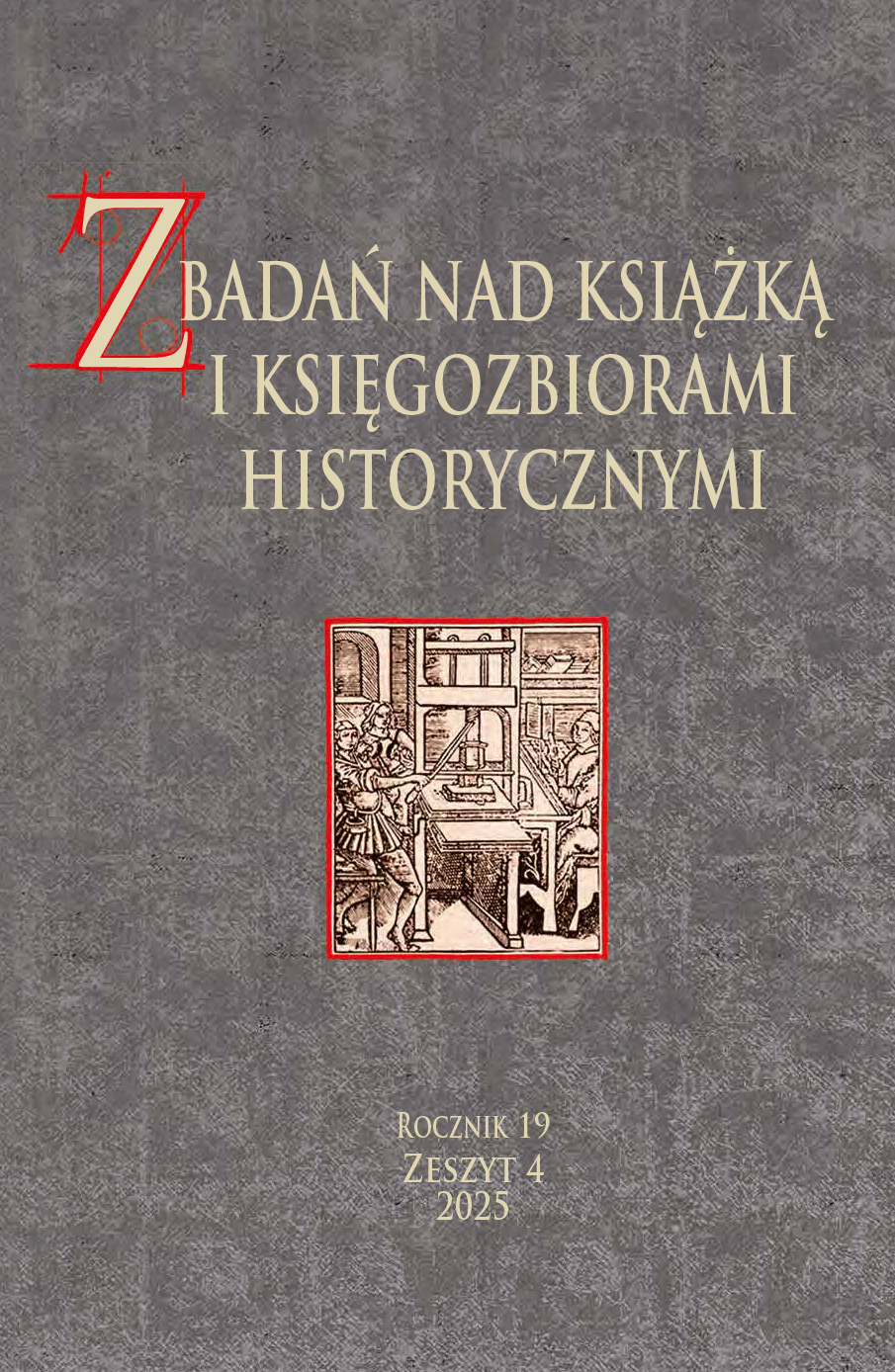In Defence of the French Cultural Heritage: The Activities of Henri Grégoire as Protector of Books and Art During the French Revolution
DOI:
https://doi.org/10.33077/uw.25448730.zbkh..311Keywords:
Henri Grégoire, protection of literary heritage, revolutionary vandalism, national heritage, French Revolution.Abstract
The article deals with the protection of the French literary heritage during the Revolution of 1789, and shortly afterwards. Revolutionary attitudes resulted among others with the devastation of libraries and archives, which the people mentally associated by with the detested ancien régime. Before the new authorities could introduce institutional measures to stop these ruinous tendencies, it was indispensible that the members of the new administration themselves, and the society as a whole, acknowledged the fundamental role of document and book collections for the of the new state. To this end the notion of “national heritage” was introduced. But, convincing the people, and the Third Estate in particular, that what formerly belonged to private individuals, the Church, or aristocracy, is now the property of the nation, turned out to be diffi cult. The Jesuit Henri Gregoire played an important part not only in the process of educating the people in this sphere, but also in the constructing of the idea of national heritage itself. In a series of reports addressed to the Convent, he revealed the foolishness and vandalism of the individuals who wreaked chaos in the libraries, and pointed to the scale of the barbarism, with which the “written word” was treated. He emphasized the tragic state of the French literary culture in order to instigate the authorities to undertake measures, which would put an end to further destruction. Thanks to the unrelenting efforts of Henri Gregoire tens of thousands of valuable books and documents were saved from annihilation. But, what perhaps proved even more important, he introduced into the French historical thought such concepts as revolutionary vandalism and the national heritage, and propagated the necessity of protecting the latter.






